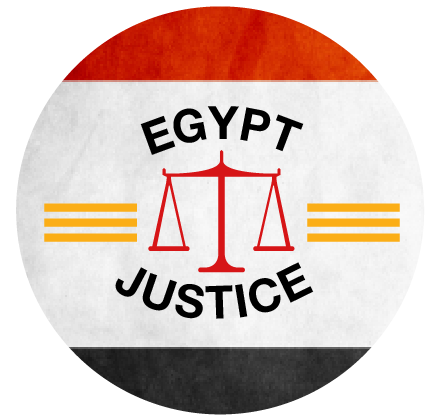Supreme Constitutional Court Rules Portions of Protest Law Unconstitutional
/It is being widely reported that on December 3, 2016, Egypt's Supreme Constitutional Court (SCC) ruled that portions of the controversial Protest Law are unconstitutional. Less widely reported are the specifics.
The bottom line, as nearly as I can tell without the benefit of having yet received a copy of the actual judgment, is that the SCC ruled that if protest demonstration organizers comply with the requirement of prior notice to the police, police or other security services cannot constitutionally ban public demonstrations without first obtaining judicial approval. In essence, the Court has inserted the judiciary as a check on government authority to ban public protest activity.
Article 73 of the 2014 Constitution states in its first paragraph:
Citizens shall have the right to organize public meetings, marches, demonstrations and all forms
of peaceful protests, without carrying arms of any kind, by serving a notification as regulated by
Law.
Against that and other constitutional standards, the Court reportedly upheld Protest Law Articles 7, 8, and 19.
Article 7 is a public safety provision. It states:
Participants in public meetings or processions or protests are prohibited to disrupt public security or order or obstruct production, or call for it, or hamper citizens’ interests or harm them or subject them to danger or prevent them from exercising their rights and work, or affecting the course of justice, public utilities, or cutting roads or transportation, or road, water, or air transport, or obstructing road traffic or assaulting human life or public or private property or subjecting it to danger.
Article 8 requires advance written notice to the police before holding public demonstrations or protests. It states:
Whoever wishes to organize a public meeting, or conduct a procession or protest should submit a written notification to the police station or point that falls within the zone of the place of public meeting or the start point of the procession or protest. The notification should be submitted at least three working days prior to the start of the meeting, procession, or protest, with a maximum of 15 days. In the case of electoral meetings, this duration will be 24 hours. The notification is to be delivered by hand or by a notice served by a bailiff and should include the following data and information:
1. The place of the public meeting or the place and route of the procession or protest.
2. The start and end time of the public meeting, procession or protest.
3. The subject of the public meeting, procession, or protest, its purpose, the demands requested by the participants in any of them, and the mottos used.
4. The names of individuals, and their titles, or entities organizing the public meeting or procession or protest, their residences and contact information.
Article 19 is a penalty provision. It states:
Anyone who violated the prohibitions stipulated in Article 7 of this law shall be punished by confinement not less than two years and not more than five years and a fine not less than EGP 50,000 and not more than EGP 100,000, or either of these two punishments.
What was ruled unconstitutional by the SCC is Article 10, which states:
If serious information or evidence is found before the scheduled time for starting a public meeting, procession, or demonstration, indicating the presence of threats to security of peace, the Minister of Interior or the specialized Director of Security may issue a justified decree prohibiting the public meeting, procession, or demonstrations, or suspending it, or relocating it, or altering the route. The organizers should be notified of the decision at least 24 hours prior to the scheduled date.
Without prejudice to the jurisdiction of the Administrative Court, organizers may appeal against the prohibition or postponement decision before the Urgent Matters Judge at the appropriate First Instance Court. The Judge shall issue his verdict swiftly.
According to news reports, the SCC ruled that judicial approval must first be obtained by police or other security services before they can constitutionally ban a public demonstration.
What is the practical effect of that ruling? The most important effect is that it inserts the judiciary as a check or buffer between the security services and denial of the people's constitutional right to hold public demonstrations.
In doing so, the Court seems to have recognized that protest organizers, the public, and the government all have legitimate interests that must be balanced against each other in regulating the right to hold public demonstrations. The crux of the Court's ruling is that the balancing of those interests is to be done by the judiciary, not by the police or other security services.
How effective a check on police power judges will be willing to be remains to be seen, may vary from court to court, and may evolve over time. What is certain is that the key to answering those questions is now held by the judiciary, not the government.
How will this ruling effect those who have been arrested and imprisoned for violating the Protest Law? Probably not much. Why? Because most of those arrested for violating the Protest Law did not comply with the advance notice requirements of the law that were upheld by the SCC.
Does the Egyptian government have a legitimate public interest in requiring advance notice of planned public demonstrations and enforcing a law penalizing failure to do so? Most countries, in the context of their own domestic laws, say yes. For a comparison of Egypt's Protest Law with those of several other countries and Washington, D.C., see this analysis and accompanying chart.
Probably the most important aspect of the Court's ruling is that it demonstrates that the SCC takes the rights granted to the people by the 2014 Constitution and the role of the judiciary in protecting those rights seriously.
(Arabic original and English translation of the Protest Law)

